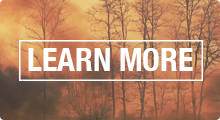
Post-Apocalyptic Survival Studies
Beginning in fall 2014, Oakland University will be offering an interdisciplinary program designed to prepare students for what some believe is the inevitable — the end of the world as we know it. The Post-Apocalyptic Survival Studies (PASS) program will provide the necessary skills to not only survive as an individual in an apocalyptic aftermath, but to contribute in a meaningful way. Blending theory and hands-on experience, students will take the required core courses and then choose one of three concentrations:
- Back to Basics
- Rebuilding a 21st Century Society
- Health and Wellness
Requirements for the degree include 24 credits hours in core courses and an additional 16 credits in one of three concentrations. The university’s General Education requirements must also be satisfied.
For those students who are much less concerned about the end of modern civilization, each of the concentrations can also be taken as a minor or certificate program.
What if there isn’t an apocalypse in our time?
Sure, there’s a chance that a catastrophic disaster will not force civilization into a downward spiral. But wouldn’t you rather be prepared if it did? In the event that the next 80 years are rather uneventful, the B.A. in Post-Apocalyptic Survival Studies still provides valuable insight into prehistoric conditions, literary and cinematic trends. As a graduate of Oakland’s program — the first of its kind — you will be uniquely qualified to:
- Design post-apocalyptic stock imagery
- Write, produce or direct approximately 80 percent of the TV series and movies expected to be released in the next 100 years
- Survive in otherwise extreme conditions longer than most people
- Most likely win The Hunger Games or prevail victoriously on an upcoming season of Survivor
Core Courses:
Learn skills necessary to survival when all the things we take for granted no longer exist — from running water to paved roads.
- A practical survival guide to the apocalypse
- The art and necessity of shelters
- Finding and maintaining drinkable water sources
- Harnessing the power of fire
- Nomadic tendencies in times of distress
- Defensive survival
Concentrations:
Back to Basics: Unless you’ll be operating under an “Every man/woman for themselves” mentality, you’ll need to build upon the basic survival skills in order to form and thrive in a group.
- Communicating without technology
- Hunting and gathering
- Traveling hazards of a post-apocalyptic world
- Predicting weather patterns and its uses
Rebuilding a 21st Century Society: Reach beyond the small, nomadic group and kickstart the new era. They’ll make documentaries about you one day.
- Establishing order from chaos
- Civil engineering: starting over
- Repurposing waste (because it will be really hard to make new things)
- Rebuilding a collapsed economy
- The sociology of entrenched empty-headedness
Health and Wellness Concentration: There will be no shortage of health and wellness concerns in a post-apocalyptic era.
- Plague prevention and illness/injury treatment with rudimentary tools
- Natural remedies: Old wives tales and their uses
- Mental health: Understanding the psychological impact of losing everything
- Nutrition: Establishing a balanced diet when the Twinkies run out
It will take many disciplines, and many with discipline, to overcome an obstacle of apocalyptic proportions. Meet the daring faculty who commit themselves to this
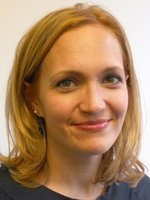
Amanda Burgess-Proctor, Ph.D.
Assistant Professor of Criminal Justice
I am delighted to be participating in OU's new interdisciplinary Post-Apocalyptic Survival Studies program. Undead status is perhaps the least well understood correlate of criminality and delinquency, even as anecdotal evidence suggests that crime (particularly interpersonal crime involving mauling, flesh-ripping, and brain consumption) remains a significant problem in Post-Apocalyptic communities. Moreover, there is an urgent need for empirical, evidence-based survival and zombie control strategies, so I am especially excited to be contributing courses to the PASS program that will help students learn to critically examine and evaluate these strategies. I am looking forward to teaching about these and other important issues. Assuming we all survive.
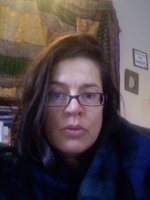 Annette Gilson, Ph.D.
Annette Gilson, Ph.D.
Associate Professor of English
Dystopian literature tells us the truth of our times. Earlier in the 20th century, Yeats warned us that "Mere anarchy is loosed upon the world," and we all see the truth of his warning every day. Signs of anarchy surround us. Nations around the world are fragmenting; frustrated and angry people blame one another rather than cooperating to build social structures that will allow human beings (and the rest of the creatures that inhabit this biosphere called Earth) to survive.
Yet herein lies the warning that makes this new major in Post-Apocalyptic Studies so timely and essential: the very social structures that we need to save us can also spiral out of control and become tools of oppression. Post-Apocalyptic Studies is the key to helping us to prevent the apocalypse from coming!
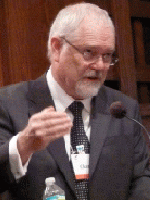 Charles Mabee, Ph.D.
Charles Mabee, Ph.D.
Director of Christianity Studies
I'm very gratified to learn of the new program in post-apocalyptic studies at OU. Although this has not yet been made public knowledge, while doing archaeological research on "Larry Bird: the Early Years" in French Lick, Indiana, this past summer, I happened upon an ancient clay tablet written in cuneiform that appears to date from the 10th millennium B.C. In addition to recording the market price of unleaded gasoline used at this time, it predicted that a jet liner would be lost somewhere near Australia near the year 2015, and that parts of Canada would become swamp land several years after that due to a monumental change in atmospheric conditions caused by one of the engines that continued to run for "several years" after the tragic incident.
This text has all the earmarks of the first reference to a post-apocalyptic world in humanly recorded history. In addition, I have recently joined a group of international scholars who meet annually at Livingston Community College in Hell, MI, that are trying to decipher other parts of this ancient document. So far, the results look authentic and making our results known through lectures, films, and social gatherings at OU could really put our wonderful university on the map (at least for the few years that we have left).

Todd K. Shackelford, Ph.D.
Professor and Chair of Psychology
I am delighted to be a founding member of the new program at Oakland University in Post-Apocalyptic Studies. Life as we know it will end, and it will not be pleasant. We must begin to identify and address the psychological consequences of post-apocalyptic life. It is too late to forestall the apocalypse, but it is not too late to gain a foothold on psychological adjustment to these dire times.
 George Sanders, Ph.D.
George Sanders, Ph.D.
Assistant Professor of Sociology
The creation of this very important program will cement OU’s position in the academic firmament. Already we are the envy of many other institutions — this will only add to the jealousy of specific colleagues at those universities [that’s right… take that, Josh!]. As a sociologist, I’m delighted that we will be at the forefront of studies that examine the correlation between the high numbers of walking dead persons and the declining rates of sexism, racism, and economic injustice. Invariably this program will help sociologists understand the importance of social rituals in a world devoid of citizens (and largely life itself). It will also intensify the debates surrounding people’s expressed interests in rot and decay… are these expressions of socio-economic class distinction or do they reflect an imperative to conform to societal norms?
On a personal level, I’m excited to teach classes like SOC 433 The Sociology of Entrenched Empty-Headedness. Here we will examine the ubiquity of mindlessness in the post-modern, post-secular, post-industrial post-apocalypse. Furthermore, outside the classroom I have already begun addressing research questions such as: If the mind is not the brain but rather a socially–inscribed process of confabulated memories and projections, then how is identify performed once the brain has been eaten? What are the criminological ramifications of getting wasted in a wasteland? And, how is meaning socially constructed when all of life is not merely brutish and short but entirely non-existent? This foretells an exciting new era for OU — one for which we can all be thankful and look back on with pride (if, of course, we are still alive to do as much).
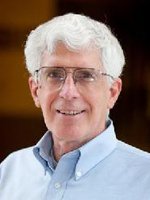
Distinguished Professor of Physical Chemistry
"I think this program couldn't be more timely, and I'm thrilled to have the opportunity to teach a course that I've envisioned for years – 'A Practical Survival Guide to the Apocalypse.' When you consider that the Earth is warming, the oceans are rising, our biodiversity is in decline and the Yellowstone megavolcano is now coming to life, we're going to need this how-to guide."
"There really are some practical considerations we need to consider, such as the right financial investments to make before the apocalypse comes. For example, buying waterfront property in southern Florida isn't going to be a long term investment that you could pass on to your grandchildren. There are survivalists our there who think the United Nations is going to come and attack us all, but let's face it – this is far more likely."

